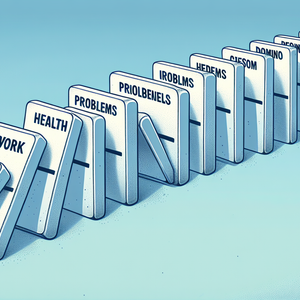The Hidden Costs of Nursing: Understanding Salary vs. Expenses

One of the most significant expenses that nurses face is the cost of continuing education and training. In an ever-evolving healthcare landscape, staying updated with the latest practices, technologies, and regulations is not just beneficial but often required. Nurses frequently invest in additional certifications, workshops, and advanced degree programs, which can accumulate to thousands of dollars annually. For instance, a nurse pursuing a specialized certification may spend anywhere from $500 to over $2,000 on courses and exam fees. This financial burden can be particularly daunting for those already grappling with student loan debt from their initial nursing education.
Uniforms and Equipment
Another frequently overlooked expense is the cost of uniforms and necessary work equipment. While some healthcare facilities provide scrubs, many nurses are required to purchase their own uniforms, which can range from $20 to $60 per set. Additionally, nurses must invest in comfortable footwear, medical tools, and personal equipment like stethoscopes. On average, a nurse may spend upwards of $300 annually on uniforms and supplies alone.
Childcare and Work-Life Balance
For many nurses, especially those with children, the cost of childcare can be a considerable financial factor. The demanding schedules of nurses, which often include long hours, night shifts, and weekends, can complicate traditional childcare arrangements. As a result, many nurses face higher childcare costs or must rely on less convenient options, which can be more expensive.
The Financial Impact of Stress
The cumulative effect of these hidden costs can lead to dissatisfaction with salary, despite what may seem like a healthy paycheck. Many nurses express feeling that their compensation does not adequately reflect their expenses and the personal sacrifices they make. This financial stress can contribute to burnout, impacting not only their work performance but also their mental health and overall job satisfaction.
Addressing the Hidden Costs
Employers and policymakers can play a crucial role in supporting nurses. Healthcare organizations should consider offering stipends for continuing education, uniforms, and childcare assistance as part of their benefits package. Such initiatives could ease the financial burden on nurses and improve job satisfaction.
While nursing can be a rewarding career, it is essential to recognize and address the hidden costs associated with the profession. By understanding the financial implications of ongoing education, work-related expenses, and childcare, nurses can better navigate their financial futures.
Clinical Nurse Specialist (CNS)
Kaiser Permanente, Cleveland Clinic
Responsibilities
Provide expert clinical guidance in specialized areas of nursing, such as oncology or cardiology.
Develop and implement evidence-based practices to improve patient care and outcomes.
Collaborate with healthcare teams to design and evaluate care plans.
Skills Required
Advanced clinical knowledge in a specific nursing specialty.
Strong leadership and mentoring abilities to guide other nursing staff.
Master’s degree in nursing or a related field, along with relevant certifications.
Nurse Educator
Responsibilities
Design and teach nursing curricula in academic settings or healthcare facilities.
Assess student progress and provide guidance to nursing students and staff.
Engage in research to contribute to nursing education and practice improvement.
Skills Required
Excellent communication and presentation skills.
Experience in instructional design and curriculum development.
Master’s degree in nursing, often with a focus on education or training.
Nurse Case Manager
Responsibilities
Coordinate patient care across multiple settings to ensure comprehensive treatment plans.
Assess patient needs and develop personalized care strategies.
Advocate for patients to navigate healthcare services, including insurance and community resources.
Skills Required
Strong organizational and critical thinking skills to manage complex cases.
Knowledge of healthcare policies, regulations, and available community resources.
Experience in clinical nursing, often requiring a BSN and case management certification.
Informatics Nurse Specialist
Responsibilities
Analyze healthcare data to improve patient care and operational efficiency.
Collaborate with IT professionals to implement electronic health records (EHR) systems.
Train nursing staff on new technologies and data management practices.
Skills Required
Proficiency in healthcare informatics and data analysis tools.
Strong understanding of clinical workflows and processes.
Certification in nursing informatics is often preferred, along with a nursing degree.
Pediatric Nurse Practitioner (PNP)
Responsibilities
Provide primary and specialty care to infants, children, and adolescents.
Conduct physical exams, diagnose illnesses, and develop treatment plans.
Educate families about health maintenance and disease prevention.
Skills Required
Expertise in pediatric care and child development.
Strong interpersonal skills to effectively communicate with children and their families.
Master’s degree in nursing with a focus on pediatric care, plus certification as a PNP.


